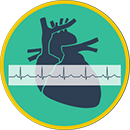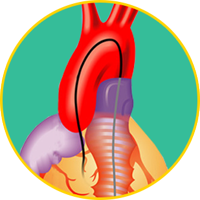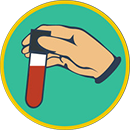Diagnosing Angina
The diagnosis of angina is made with the help of clinical examination as well as several diagnostic tests. If you or your loved one has had an episode of such a type of gripping pain consult your doctor at the earliest.
Some tests may help your doctor confirm or rule out angina. They are:

Electrocardiogram (ECG)
ECG is a simple test for the diagnosis of angina. Each beat of your heart is triggered by an electrical impulse generated from special cells in your heart. An electrocardiogram records the electrical signals generated by your heart. These occur in patterns and change or get disrupted if you have any underlying heart issue.

Stress test
Angina is sometimes triggered by physical activity. During a stress test, your heart status is monitored through ECG and Blood pressure monitoring while you are walking on a treadmill.

Echocardiogram
An echocardiogram uses sound waves to detect areas in the heart which have been damaged due to poor blood flow.

Angiography
An angiography helps your doctor take a glimpse inside your heart’s blood vessels. A dye that is visible on being x-rayed is injected into the blood vessels. This helps to detect any anomalies.

Chest X-ray
This test takes images of your heart and lungs. This is to look for other conditions that might explain your symptoms and to see if you have an enlarged heart.

Blood tests
If there is any kind of heart damage, the level of certain heart enzymes increases in the blood. Blood tests can reveal this.

Cardiac computerized tomography (CT) scan
A CT scan takes many images of your heart to show if any blood vessels are narrowed or if there is any other heart issue.

Cardiac MRI
A cardiac MRI captures detailed images of the heart’s structure and its blood vessels to detect any abnormality.
Angina Treatment
The goals of angina treatment are to reduce the number and the severity of the angina symptoms and to reduce the risks of falling prey to a heart attack or even death.
Your physician might prescribe medicines to:
Ask your Cardiologist for all the available treatment options.
Medical procedures and surgery
Sometimes, surgical procedures like angioplasty, stenting, and bypass surgery are employed to relieve angina in case of blockages.
These are usually done by Interventional Cardiologists. Refer to the Doctor Locator to find a Cardiologist near you.


